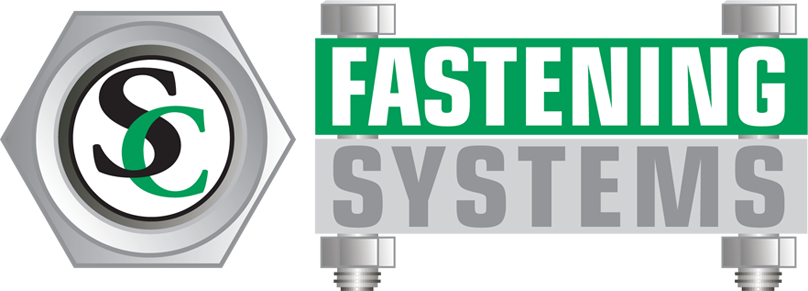Different Drive Types on Fasteners: Strengths, Benefits, and Applications
Your complete guide to choosing the right fastener drive for maximum performance
Fasteners come in countless shapes and sizes, but one of the most important aspects to consider is the drive type. The drive type refers to the recess or shape in the head of the fastener where a tool (such as a screwdriver, wrench, or bit) is applied to tighten or loosen it. Each drive type has unique benefits, drawbacks, and common applications that make it suitable for certain industries or projects.
Understanding the differences helps ensure efficiency, durability, and proper installation when selecting the right fastener.
1. Slotted Drive
Description: A single straight slot across the head of the fastener.
Strengths & Benefits:
- Simple design; widely available
- Can be used with flat-head screwdrivers
- Easy to manufacture and cost-effective
Negatives:
- High risk of “cam-out” (slipping of the screwdriver)
- Not ideal for power tools
- Can damage surfaces if the screwdriver slips
Common Uses: Light-duty woodworking, furniture, electrical applications. Found in household appliances and vintage hardware.
2. Phillips Drive
Description: A cross-shaped (+) drive that is self-centering.
Strengths & Benefits:
- Reduces slippage compared to slotted
- Works well with power tools
- Common and versatile
Negatives:
- Still prone to cam-out under high torque
- Not suitable for heavy industrial fastening
Common Uses: Construction, woodworking, sheet metal, automotive, and electronics.
3. Pozidriv Drive
Description: Similar to Phillips but with additional smaller cross lines between the main slots.
Strengths & Benefits:
- Provides more contact points than Phillips
- Reduced cam-out risk
- Allows higher torque application
Negatives:
- Easily confused with Phillips; using the wrong driver damages the fastener
- Less common in North America compared to Europe
Common Uses: European furniture assembly, cabinetry, and manufacturing.
4. Torx (Star) Drive
Description: A star-shaped drive with six rounded lobes.
Strengths & Benefits:
- Excellent torque transfer with minimal cam-out
- Ideal for high-strength applications
- Extends tool and fastener life
Negatives:
- Requires specific Torx bits
- Slightly more expensive
Common Uses: Automotive, aerospace, electronics, and heavy machinery.
5. Hex (Allen) Drive
Description: A six-sided hexagonal recess, often used with Allen keys (hex wrenches).
Strengths & Benefits:
- Provides strong grip with minimal slippage
- Compact head design (great for tight spaces)
- Works well with socket head cap screws
Negatives:
- Can strip if incorrect wrench size is used
- Allen keys can bend or break under high torque
Common Uses: Machinery, furniture assembly, bicycles, and precision equipment.
6. Square (Robertson) Drive
Description: A square-shaped recess, known as Robertson drive.
Strengths & Benefits:
- Very low cam-out
- Excellent for power driving
- One-handed operation possible (screw stays on the bit)
Negatives:
- Less common in the U.S. compared to Canada
- Requires special square drivers
Common Uses: Woodworking, construction, decking, and cabinetry.
7. Combination Drives
Description: A hybrid of two drive types (e.g., Phillips/Slotted, Square/Slotted).
Strengths & Benefits:
- Greater flexibility – can be driven with multiple tools
- Convenient for fieldwork where tool options may be limited
Negatives:
- Reduced strength compared to dedicated drive types
- Can strip more easily if mismatched drivers are used
Common Uses: Electrical panels, light fixtures, and general purpose fasteners.
8. Specialty Drives (Security Fasteners)
Examples: Pin-in Torx, Tri-Wing, Spanner, Clutch Head.
Strengths & Benefits:
- Designed for tamper resistance
- Deters theft or unauthorized removal
Negatives:
- Requires special tools for installation and removal
- Can be inconvenient for maintenance if tools are lost
Common Uses: Public fixtures, security equipment, automotive electronics, and aerospace.
Conclusion
Choosing the correct fastener drive type ensures strength, efficiency, and security in any project. For woodworking and general use, Phillips and Square drives are reliable. For high-torque industrial applications, Torx and Hex drives excel. Specialty security drives are essential when tamper resistance is a priority.
By understanding the pros and cons of each drive type, professionals and DIYers can select the best option to maximize performance and reduce risk of failure.
Expert Drive Type Selection at SC Fastening Systems
From Phillips and Torx drives to specialized security fasteners, we stock the complete range of drive types for every application and industry requirement.
SC Fastening Systems provides expert guidance on drive type selection backed by our comprehensive inventory and technical expertise. Browse our drive options or consult our experts today.
